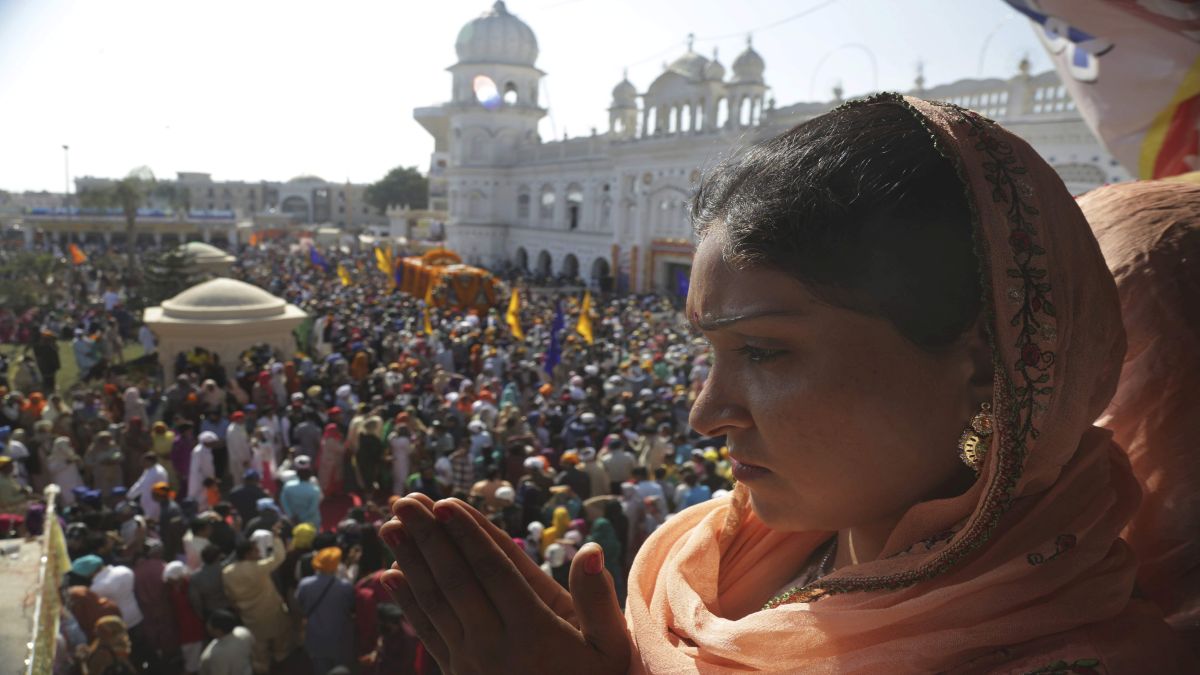What was supposed to be a moment of reverence turned into a dirty political game in Pakistan on Wednesday. In a sad turn of events, Pakistani authorities turned away 12 Hindu pilgrims, who had travelled as part of the Sikh Jatha to celebrate the birth anniversary of Guru Nanak Dev Ji.
The move exposes Pakistan’s deliberate attempt at trying to create divisions between the two religious communities, and has earned scorn and disdain from people on social media.
But what exactly happened? What led Pakistan to deny entry to the Hindus?
First Sikh Jatha post Operation Sindoor
The entire fracas stems from a group of Indians travelling to Pakistan to visit the Nankana Sahib , Sikhism founder Guru Nanak’s birthplace, to celebrate his 556th birth anniversary.
Notably, this was the first Sikh Jatha to travel to Pakistan following Operation Sindoor — the military hostilities between India and Pakistan — back in May. Earlier, the Indian government had declined to send the jatha to Pakistan, citing security concerns. At the time, Shiromani Akali Dal (SAD) party president Sukhbir Singh Badal termed the move “hurtful” and appealed to Union Home Minister Amit Shah to reconsider the decision. “Sikh devotees have deep religious sentiments attached to visiting Sri Nankana Sahib. The Kartarpur Corridor should be opened,” he was then quoted as saying.
These appeals prompted the Indian government to change their stance and permit the jatha to travel to Pakistan to mark the birth anniversary of Guru Nanak Dev.
Following the Centre’s nod, around 2,100 people were granted permission to visit Pakistan to pay obeisance to the Sikh guru.
Pakistan denies entry to Hindus
Following the government’s approval, an estimated 1,900 people entered Pakistan via the Wagah border crossing on Tuesday. However, on the Pakistani side at the immigration counter, a group of pilgrims were denied permission, all of them being Hindus.
A Times of India report states that the 12, who were part of the larger group of pilgrims from India, hailed mostly from Delhi and Lucknow. They were forced to “walked back humiliated” after Pakistani officials announced that only those listed as Sikhs would be allowed to board the bus bound for the sacred site in Nankana Sahib.
Among those denied permission was Delhi-based resident Amar Chand, who was travelling with seven of his family members, including four women. “We were part of the Sikh jatha and wanted to go for the pilgrimage, but we were sent back just because we are Hindus. The Pakistani official told us, ‘What will you do in this Jatha’?”
Speaking to India Today, he added that “Pakistan looted them”, as the pilgrims, who were denied, were not refunded the bus fare they had paid for the journey.
An intelligence officer, who spoke to the spurned devotees, told the Times of India: “This is unprecedented. Pakistan could repeat such actions in the future, even against devotees travelling to Gurdwara Darbar Sahib, Kartarpur Sahib, via Kartarpur Corridor.”
Senior government sources have slammed the Pakistani side for their conduct, calling it a diplomatic concern. “When the receiving country fails to ensure the dignity and safety of visiting nationals, the entire process becomes futile,” the sources told News18, adding, “Many of the affected Indian visitors were pilgrims and ordinary citizens, not political players. These simple people have obtained valid travel permits and were subjected to harassment, intimidation, and unnecessary scrutiny at border crossings and religious sites.”
“This amounts to mistreatment that undermines the basic spirit of people-to-people exchange. This is a serious matter of humanitarian sensitivity. It is a waste of time, resources, and national goodwill. This erodes public trust in any form of cross-border engagement," added the sources.
Pakistan’s harassment of pilgrims is an old trick
While Islamabad’s denial to the Hindu pilgrims for Nankana Sahib is shocking and condemnable, it is not completely new.
Despite repeated requests from the Indian side, Pakistan continues to levy a $20 (Rs 1,722) fee on Indian pilgrims for each visit to Gurdwara Darbar Sahib through Kartarpur Sahib Corridor. As of last October, Islamabad collected approximately Rs 51 crore. Notably, locals visiting the Gurudwara are not subjected to any such fee.
And in 2018, India lodged a strong protest against the harassment of its consular officials visiting Pakistan along with Sikh pilgrims. At the time, the Ministry of External Affairs noted that consular officials of the Indian High Commission in Islamabad were harassed and denied access to Gurdwara Nankana Sahib and to Gurdwara Sacha Sauda. They were not allowed to access the shrines, both of which are located in Pakistan’s Punjab district, despite having been granted prior travel permission by Pakistan’s Ministry of Foreign Affairs.
India has also alleged that Pakistan has attempted to incite communal disharmony and “promote secessionist tendencies” by displaying pro-Khalistan banners on their way to the shrines.
With inputs from agencies
)